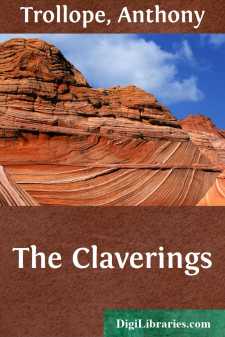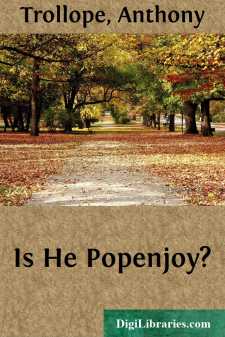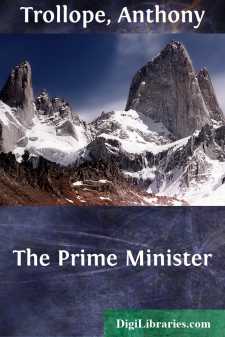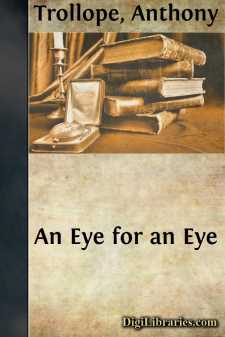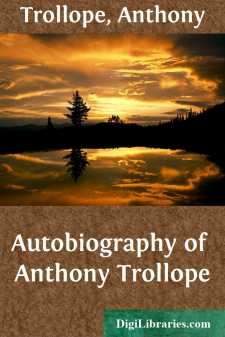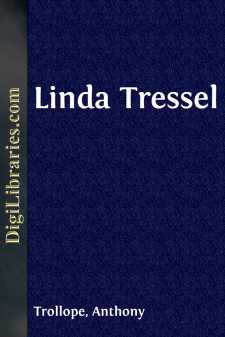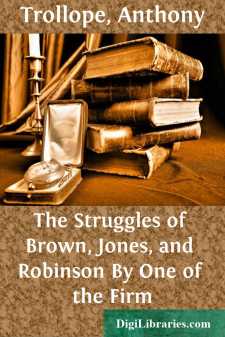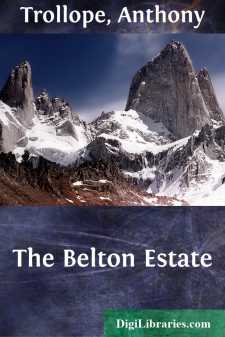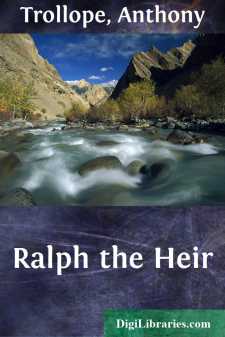Categories
- Antiques & Collectibles 13
- Architecture 36
- Art 48
- Bibles 22
- Biography & Autobiography 813
- Body, Mind & Spirit 142
- Business & Economics 28
- Children's Books 15
- Children's Fiction 12
- Computers 4
- Cooking 94
- Crafts & Hobbies 4
- Drama 346
- Education 46
- Family & Relationships 57
- Fiction 11829
- Games 19
- Gardening 17
- Health & Fitness 34
- History 1377
- House & Home 1
- Humor 147
- Juvenile Fiction 1873
- Juvenile Nonfiction 202
- Language Arts & Disciplines 88
- Law 16
- Literary Collections 686
- Literary Criticism 179
- Mathematics 13
- Medical 41
- Music 40
- Nature 179
- Non-Classifiable 1768
- Performing Arts 7
- Periodicals 1453
- Philosophy 64
- Photography 2
- Poetry 896
- Political Science 203
- Psychology 42
- Reference 154
- Religion 513
- Science 126
- Self-Help 84
- Social Science 81
- Sports & Recreation 34
- Study Aids 3
- Technology & Engineering 59
- Transportation 23
- Travel 463
- True Crime 29
The Claverings
by: Anthony Trollope
Description:
Excerpt
Chapter I
Julia Brabazon
The gardens of Clavering Park were removed some three hundred yards from the large, square, sombre-looking stone mansion which was the country-house of Sir Hugh Clavering, the eleventh baronet of that name; and in these gardens, which had but little of beauty to recommend them, I will introduce my readers to two of the personages with whom I wish to make them acquainted in the following story. It was now the end of August, and the parterres, beds, and bits of lawn were dry, disfigured, and almost ugly, from the effects of a long drought. In gardens to which care and labor are given abundantly, flower-beds will be pretty, and grass will be green, let the weather be what it may; but care and labor were but scantily bestowed on the Clavering Gardens, and everything was yellow, adust, harsh, and dry. Over the burnt turf toward a gate that led to the house, a lady was walking, and by her side there walked a gentleman.
“You are going in, then, Miss Brabazon,” said the gentleman, and it was very manifest from his tone that he intended to convey some deep reproach in his words.
“Of course I am going in,” said the lady. “You asked me to walk with you, and I refused. You have now waylaid me, and therefore I shall escape—unless I am prevented by violence.” As she spoke she stood still for a moment, and looked into his face with a smile which seemed to indicate that if such violence were used, within rational bounds, she would not feel herself driven to great danger.
But though she might be inclined to be playful, he was by no means in that mood. “And why did you refuse me when I asked you?” said he.
“For two reasons, partly because I thought it better to avoid any conversation with you.”
“That is civil to an old friend.”
“But chiefly”—and now as she spoke she drew herself up, and dismissed the smile from her face, and allowed her eyes to fall upon the ground—“but chiefly because I thought that Lord Ongar would prefer that I should not roam alone about Clavering Park with any young gentleman while I am down here; and that he might specially object to my roaming with you, were he to know that you and I were—old acquaintances. Now I have been very frank, Mr. Clavering, and I think that that ought to be enough.”
“You are afraid of him already, then?”
“I am afraid of offending any one whom I love, and especially any one to whom I owe any duty.”
“Enough! Indeed it is not. From what you know of me, do you think it likely that that will be enough?” He was now standing in front of her, between her and the gate, and she made no effort to leave him.
“And what is it you want? I suppose you do not mean to fight Lord Ongar, and that if you did you would not come to me.”
“Fight him! No; I have no quarrel with him. Fighting him would do no good.”
“None in the least; and he would not fight if you were to ask him; and you could not ask without being false to me.”
“I should have had an example for that, at any rate.”
“That’s nonsense, Mr....


